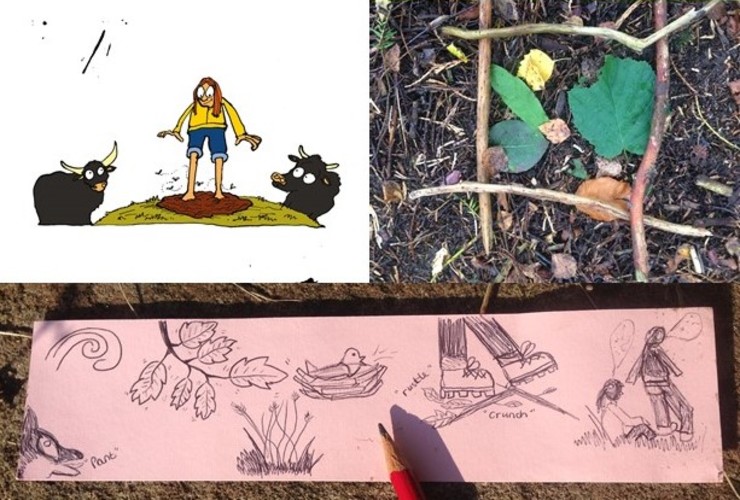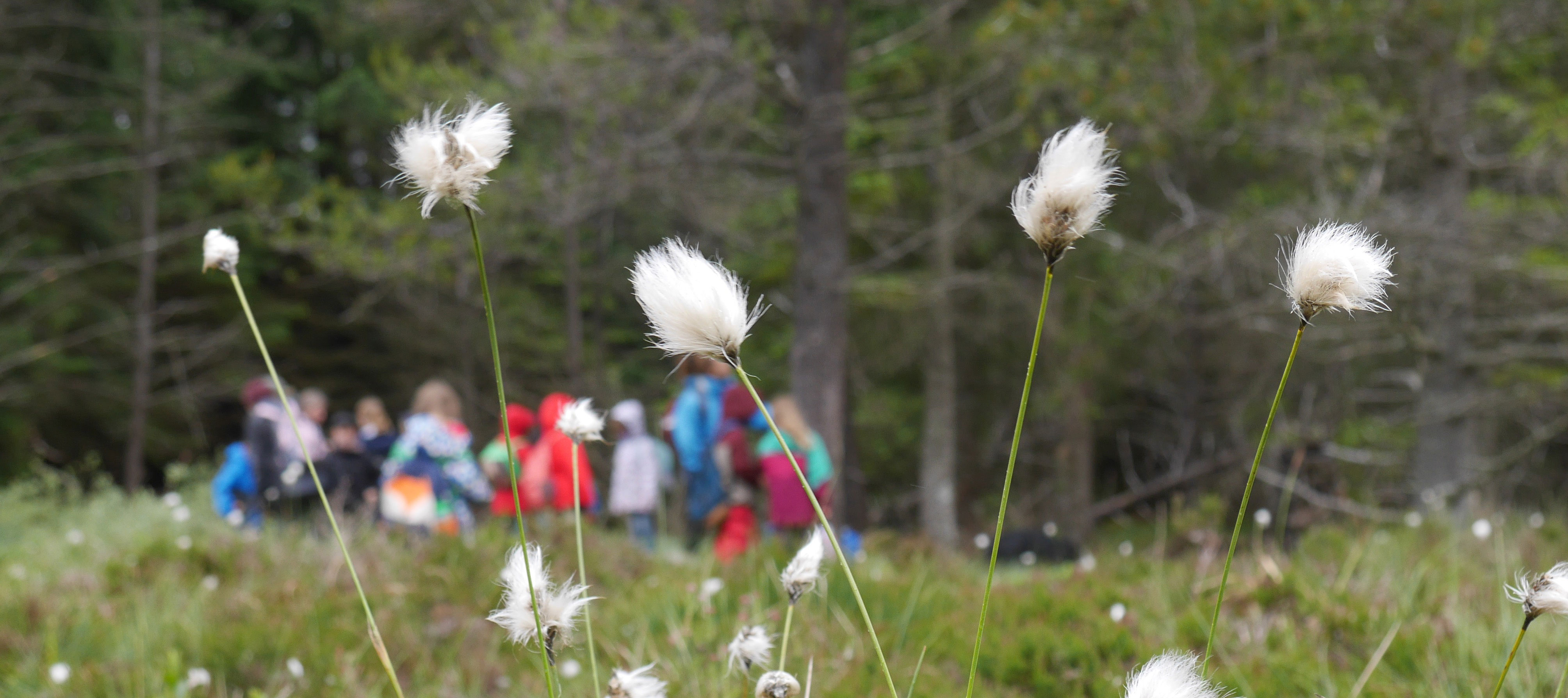Health and wellbeing
The John Muir Trust believes that everyone should have opportunities to experience the benefits of connecting with wild places, from urban nature to our most remote landscapes.
As we work towards achieving the Sustainable Development Goals by 2030 of building a happier, healthier society for all, we aim to inspire people from all walks of life to spend quality time in wild nature, encouraging active lifestyles and responsible recreation and improving mental health and wellbeing to help both people and nature to flourish.
Find examples below of how the Award is used to support health and wellbeing in education and youth settings, with adults and families.

Five Ways to Wellbeing
The Five Ways to Wellbeing are evidence-based actions to improve mental health and wellbeing developed by the New Economics Foundation. See our Five Ways to Wellbeing document to find out why wild nature offers an ideal setting to explore the Five Ways, and shares ideas for putting them into action.

Health impacts of the Award
A Health Impacts of the John Muir Award research study assessed the impact of the John Muir Award on the health-related behaviours, attitudes and aspirations of participants, finding those living in the poorest circumstances were less likely to have had prior experience of wild places. Find examples below of how the John Muir Award is used in a diverse range of settings to support positive health and wellbeing outcomes for individuals and communities.
Education and youth work settings
Schools, colleges, youth centres, community learning and development services, residential centres and more use the John Muir Award to give structure and meaning to young peoples’ experiences in the outdoors, allowing them to gain valuable recognition of their achievements.
- School settings – Helping young people at St Maurice’s High School benefit from increased connections with others, feeling more active, enhanced confidence and independence and feeling better in themselves – see the Wild Ways Well project evaluation for more.
- Supporting young asylum seekers and refugees – Glasgow Clyde College’s 16 plus ESOL course has been specially designed to cater for the challenges young unaccompanied refugees and asylum seekers face in their education and in making connections with their local community. Read how participants gain a sense of freedom, relaxation and enjoyment through their Award activities.
I love being outdoors learning as it is so much more fun. I can’t cope with classrooms all the time. The outside gives me time and space to think.

Improving health outcomes for adults
Adults engage in the John Muir Award through a variety of projects and services including social prescribing and NHS referral programmes, community and adult learning groups, employability and skills projects and informal volunteering groups. See below for examples of how organisations use the Award to help deliver improved health and wellbeing outcomes for the people they work with.
- Mental health interventions - The Green Light Trust offer a range of programmes, including their Women's Wellbeing Project. Providing a safe space in the woods for women to relax, learn new skills and improve their mental health. Scottish Forestry’s Branching Out programme promotes positive mental health through a 12 week woodland programme that integrates opportunities to work towards a John Muir Award. Read participants’ reflections on their experience of connecting with wild places through their poems, crafts, art and words here.
- Skills building and social connections - Education Futures Trust aims to build resilience and self-confidence to help individuals into volunteering and work through promoting connections with nature and the people around them.
- Walking groups - Northumberland’s coastline and an upcycled ‘flotsum and jetsum’ art exhibition formed the focus for a project to improve physical and mental health through walking and spending time in natural environments – read more here.
- Dementia in the outdoors - There is a growing number of projects and research looking at the role of natural environments as places of mental wellbeing for people with dementia. Read more about the benefits of a woodland therapy for dementia research project which integrated the Award following participant feedback, helping to give people a greater sense of purpose and make the experience more meaningful through hands-on conservation activities.
- Addiction recovery - Making a positive contribution to the environment and wider community is key to the success of outdoor-based recovery work. Working towards a John Muir Award can give a structure for activities and valuable recognition of achievements. Read about Phoenix Futures’ Recovery Through Nature programme which has integrated the Award into its practical conservation projects in settings across England and Scotland, including at Trust property Glenlude; and the Recovery Ramblers programme in Barnsley which focuses on the power of walking in nature on peoples’ recovery and mental health.
Recovery Ramblers helps me to feel connected to nature… It uplifts my spirits and mental health. I have many worries and problems and I feel better about them and more self-empowered when I’m rambling.